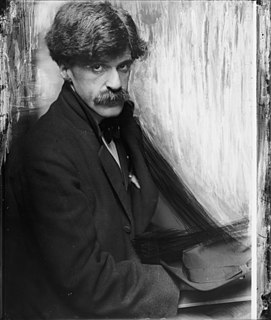A Quote by Celine Sciamma
Well, I think I'm trying to be in the middle of two traditions, the French tradition, which is about being fair and staying close to reality, and the American tradition which is about making up a stylized universe, made of shapes and colors.
Related Quotes
The urge to break with a tradition is only appropriate when you're dealing with an outdated, troublesome tradition: I never really thought about that because I take the old-fashioned approach of equating tradition with value (which may be a failing). But whatever the case, positive tradition can also provoke opposition if it's too powerful, too overwhelming, too demanding. That would basically be about the human side of wanting to hold your own.
Those who feel guilty contemplating "betraying" the tradition they love by acknowledging their disapproval of elements within it should reflect on the fact that the very tradition to which they are so loyal—the "eternal" tradition introduced to them in their youth—is in fact the evolved product of many adjustments firmly but delicately made by earlier lovers of the same tradition.
In the West nowadays, it's very common to talk about the Judeo- Christian tradition. It's a common term. The term is relatively modern but the reality is an old one. One could with equal justification talk about a Judeo-Islamic tradition or a Christian-Islamic tradition. These three religions are interlinked in many signification ways, which marks them off from the rest of the world. And I think there is a growing awareness of this among Christians and among Jews, and even to some extent to some Muslims. That's happening for obvious reasons.
I detest tradition for tradition's sake; the half-alive; that which is not real. I feel no hatred of individuals, but of customs, traditions; superstitions that go against life, against truth, against the reality of experience, against the spontaneous living out of the sense of wonder-of fresh experience, freshly seen and communicated.
I think traditions change and modify with each generation. With new members joining the family, their customs and traditions have to be respected and combined with the exiting traditions. And the children that follow are part of that new evolving tradition and, as they grow, will have input that will, in turn, continue to evolve that tradition.
You can either be in the Ron Paul tradition and say there's nothing wrong with heroin and cocaine, or you can be in the tradition that says, 'These kind of addictive drugs are terrible; they deprive you of full citizenship, and they lead you to a dependency which is antithetical to being an American.'
The Anglo-American tradition is much more linear than the European tradition. If you think about writers like Borges, Calvino, Perec or Marquez, they're not bound in the same sort of way. They don't come out of the classic 19th-century novel, which is where all the problems start. 19th-century novels are fabulous and we should all read them, but we shouldn't write them.

































